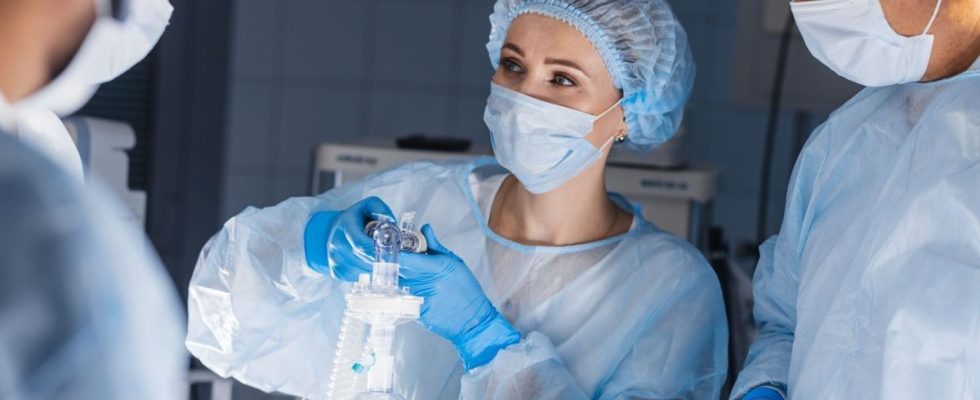Published on
Updated
Reading 2 mins.
How to regulate the pain that a patient may feel during a surgical procedure in an automated way? The system developed by medical researchers from the Lille University Hospital and the start-up MDoloris answers this question. The explanations of its founding president, Fabien Pagniez.
It is a world first. The start-up MDoloris, directed by Fabien Pagniez announces the development of an automated system allowing the regulation of pain, during a surgical operation.
A successful system after 20 years of research
“The credit for this idea goes to the doctor-researchers at the Lille University Hospital, who are also intensive care anesthesiologists. It took 20 years in total to develop this system, which should be on the market in late 2024, early 2025.” explains Fabien Pagniez first.
What is this system?
This new technology, called “closed-loop perioperative nociception control”, consists in reducing the pain that the patient may feel during a surgical operation, in an automated way.
The system is based on the patient’s blood pressure measured using electrodes and an index that reflects the parasympathetic tone, called the Analgesia Nociception Index (ANI). These two elements make it possible to estimate the evolution of the level of pain, continuously. This makes it possible to instantly dispense the exact dose of analgesic needed, depending on the patient and his pain, therefore.
The “future of anesthesia”, according to Fabien Pagniez
This technique, by automatically controlling the patient’s need for painkillers during the operation, frees the anesthesiologist from this task, which only supervises it. “By analogy, I often cite the example of the airplane pilot and autopilot. The plane does the job, even if the pilot remains present” adds Fabien Pagniez.
Is the system completely reliable?
“A comparative study that we conducted will be published at the end of the year. It demonstrates that by comparing our system to an anesthesiologist who would remain with his eyes glued to the monitor to adjust the drugs, our system obtains better results.“ further details the founder of MDoloris.
“This is truly a historic breakthrough, because each patient is different, we all have our own threshold of pain sensitivity, which can also be different depending on the operation. When we see that the patients are more stable during the operation but also less painful and regain consciousness more quickly, once in the recovery room, we say to ourselves that the bet has been won” he concludes.
